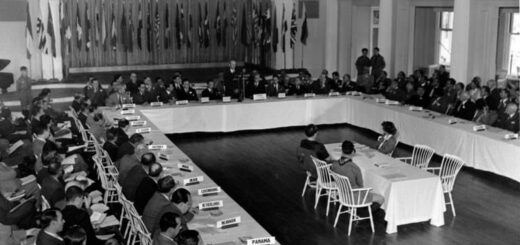Lotus Case (France V Turkey, PCIJ 1927)
Lotus Case (France V Turkey, PCIJ 1927)
Principle: To be customary International Law there must be some legal obligation (Opinio Juris) or force to maintain the customs not because merely they want to.

Fact: On 2 August 1926, a collision occurred on the high seas between the French mail steamer Lotus proceeding to Constantinople, and the Turkish collier, ―Boz – Kourt‖. The ―Boz – Kourt‖ sank and eight Turkish nationals perished.
On 3 August, the Lotus arrived in Constantinople; Where the Turkish authorities proceeded to hold an inquiry into the collision. They instituted joint criminal proceedings in accordance with the Turkish law against the captain of the ―Boz – Kourt‖, and the officer on watch on board the Lotus at the time of the collision. Lieutenant Demons, a French citizen, on a charge of manslaughter.
The case was first heard on 28 August 1926 before the Criminal Court of Istanbul. Lieutenant Demons‘ objection to the jurisdiction of the Court was overruled.
On 15 September, the Criminal Court of Istanbul sentenced Demons to a short term of imprisonment and fine. The proceedings had been instituted in pursuance of Turkish legislation.
According to the French Government, the Criminal Court claimed jurisdiction under Article 6 of the Turkish Penal Code. The French Government protested against the arrest of Lieutenant Demons and against the assumption of jurisdiction by the Turkish Court. By a special agreement, signed at Geneva on 12 October 1926 between the French and Turkish Governments and filed with the Registry of the Court in accordance with article 40 of the Statute and Article 35 of the Rules of the Court, the latter submitted to the Permanent Court of International Justice the question of jurisdiction that had arisen between them as a result of the collision.
Issues:
Did Turkey violate international law when Turkish courts exercised jurisdiction over a crime committed by a French national, outside Turkey? If yes, should Turkey pay compensation to France?
Decision:
The Court held that Turkey, by instituting criminal proceedings against Lieutenant Demons, had not acted in conflict with the principles of international law; consequently, there was no occasion to give judgment on the question of the pecuniary reparation.
Reasoning:
The Court first established that the question submitted to it was whether the principles of international law prevented Turkey from instituting criminal proceedings against Lieutenant Demons under Turkish law. The Court found that the French contention that Turkey, in order to have jurisdiction, should be able to point to some title of jurisdiction recognized by international law as opposed to generally accepted international law, as referred to by Article 15. It stated that the first restriction imposed by international law upon a State was that it could not exercise its power in any form in the territory of another State. However, this did not imply that international law prohibits a State from exercising jurisdiction in its own territory in respect of any case that relates to acts that have taken place abroad and in which it cannot rely on some permissive rule of international law.



